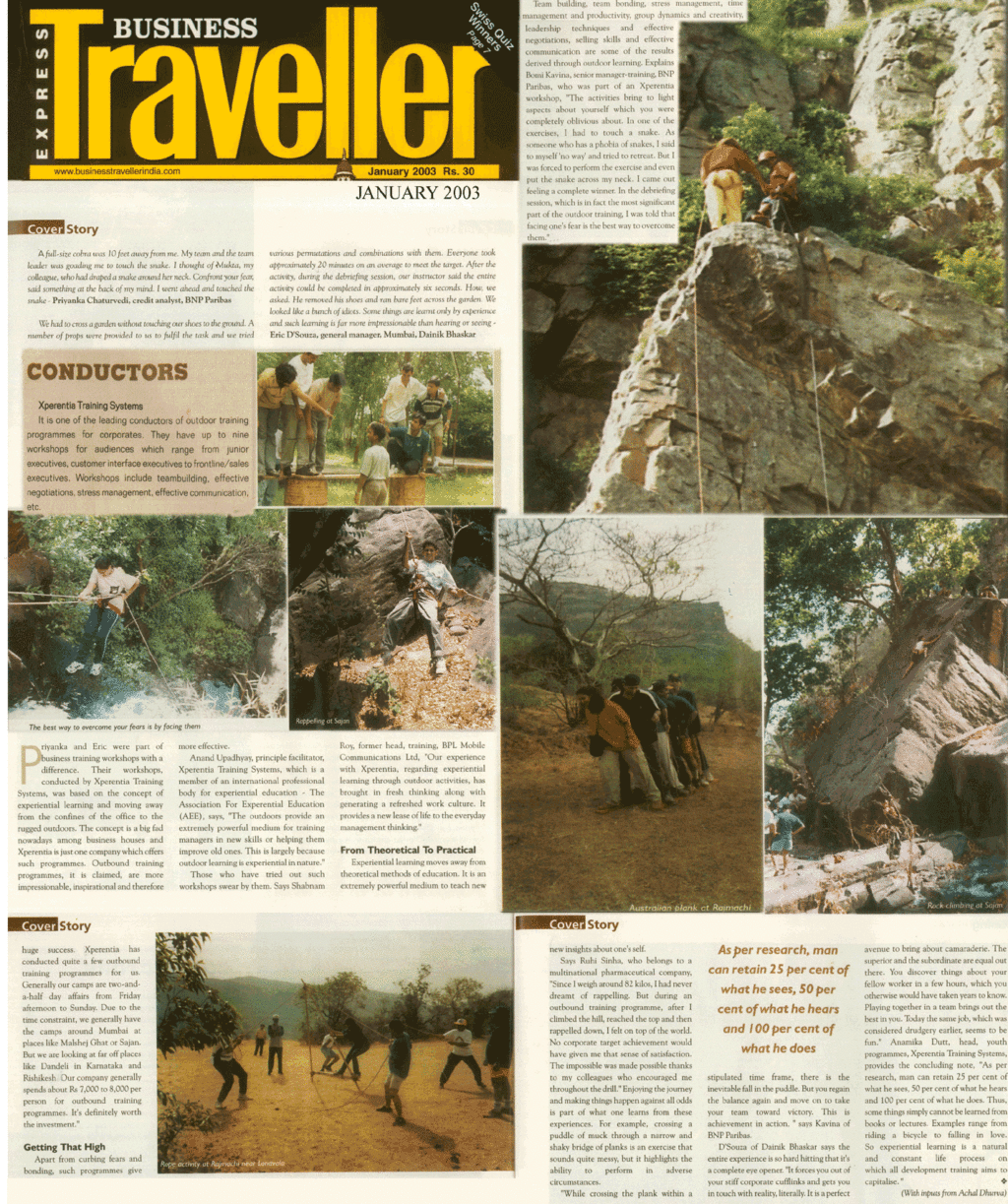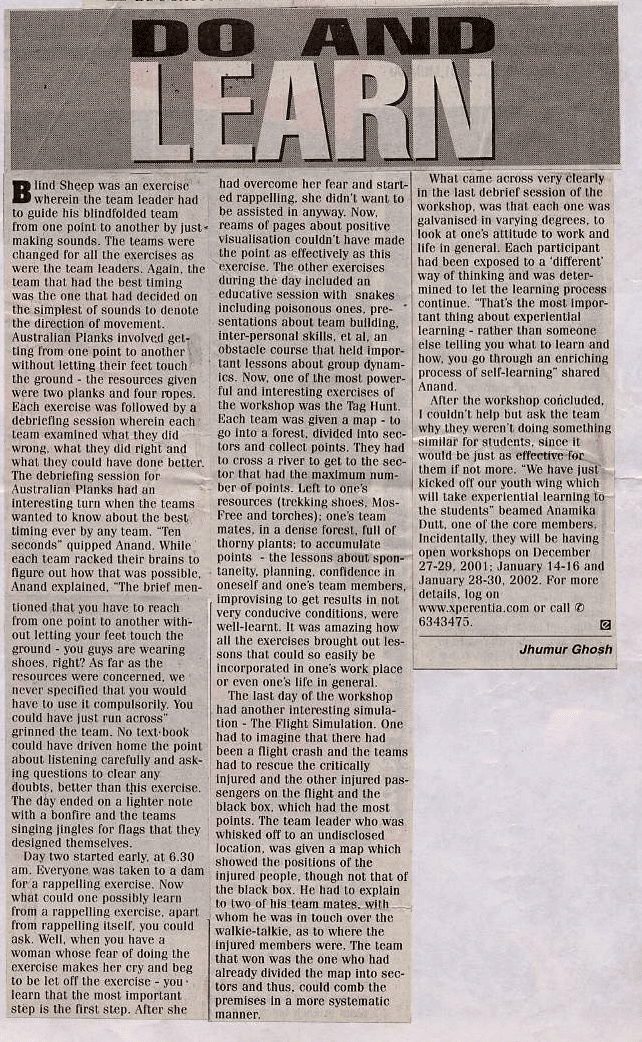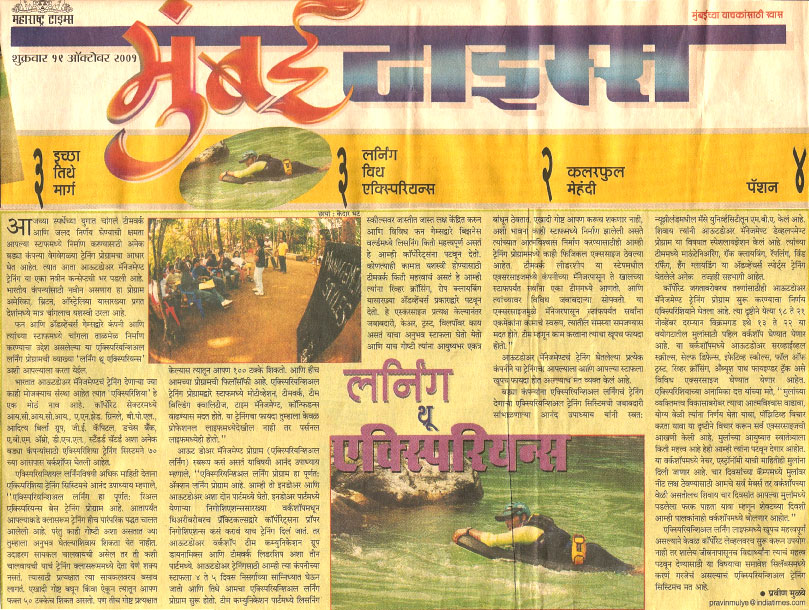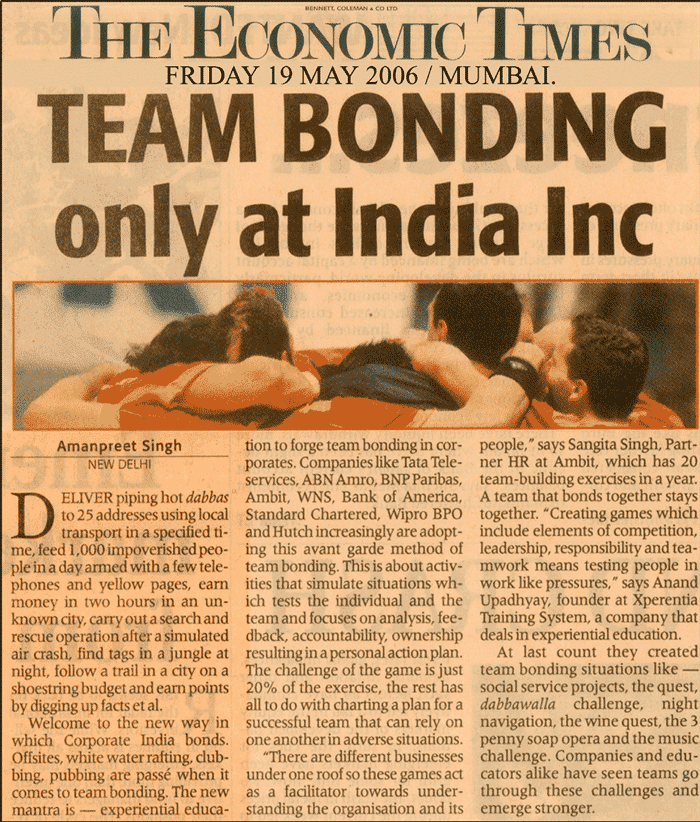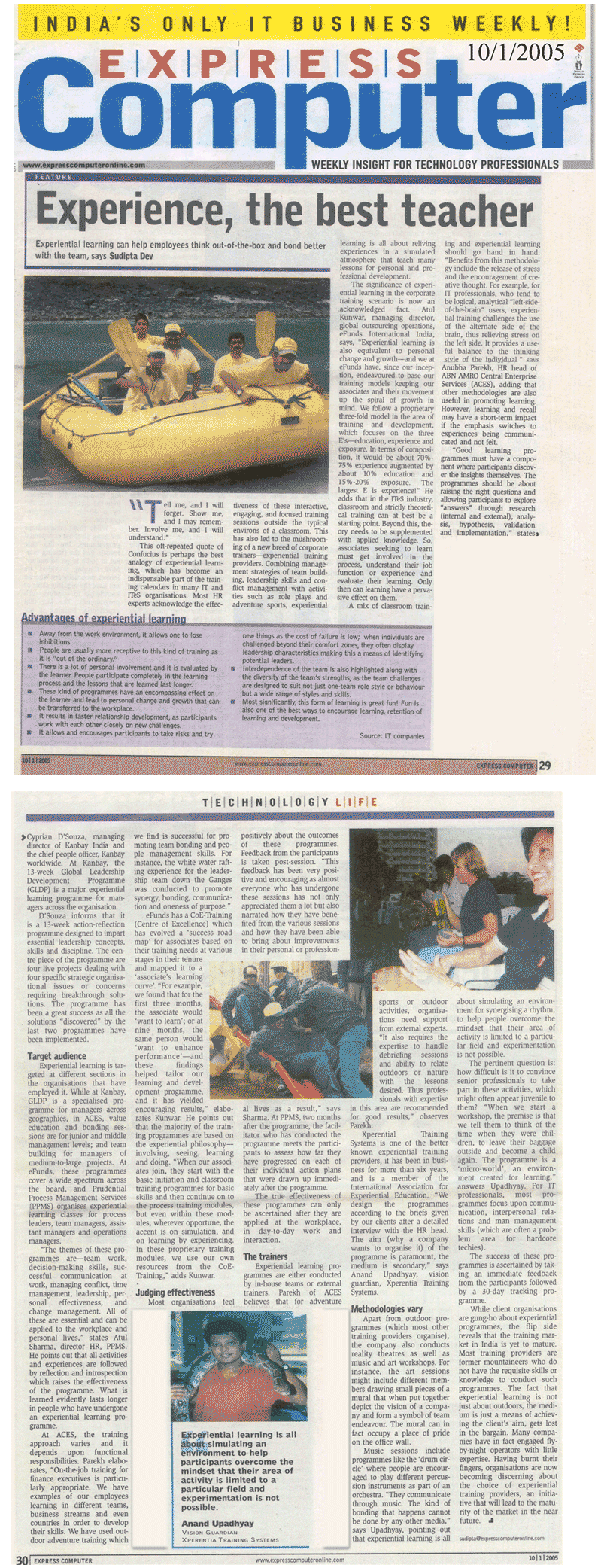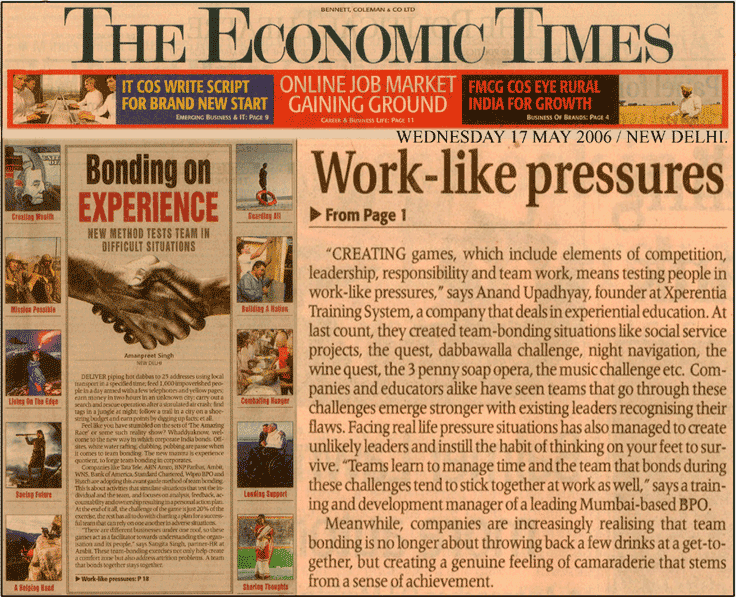The term “generation gap” refers to the psychological difference between the adults and the young generation, the difference in perspectives and beliefs when it comes to things like success, love, life and so on.
Category: General Experiences
How the Maoris Learn
Education is universal in nature. It is only the nature of delivery that changes across cultures. While we like to delusion ourselves into thinking that we are now delivering learning in the best possible manner, the reality is that there have been much more sophisticated and involved ways of learning that had been developed. These ways have been largely forgotten.
Below is an excerpt from a book “Right of Centre- Experiential initiatives for Action Learning authored by Anand Upadhyay, that would shed light on this traditional way to learn. He has graciously allowed us to share this chapter with the readers of this blog. This chapter describes a very unique practice of the Maori tribe – which advanced training programs are now, again, adopting as preferred method of learning.
Over to Anand.
—–
My first tryst with experiential learning happened in the year 1990, on a Maori ‘Marai’ (tribal community centre) in New Zealand, during a 5 year assignment with a Maori development enterprise in Auckland. Maoris are the indigenous people of New Zealand and the legend has it that they arrived in New Zealand on boats, having fled from their home (a mythical island named ‘Hawaikii’) which was consumed by volcanoes.
Every Maori tribe has a Marai, which is named after the boat in which they arrived in NZ. The walls of the Marai have murals and carvings depicting their ancestors. Families congregate and spend the weekend together as one big extended family. All the chores like cooking, serving food, cleaning up are divided between the families and it’s a perfect example of community living. The weekend also provides a platform for the Maori elders to teach the young ones about Maori art & crafts, its cultural heritage, values and language.
Elements like storytelling, learning the ‘Poi’ (a straw / sponge ball attached to the end of a short string) movements and the ‘Hakka’ (traditional war dance ), the ‘Hangi’ method of traditional underground cooking without using conventional cookers, are all part of the experiential ‘action’ learning that takes place during a Marai weekend.
The teaching methodology is not unlike the ‘Gurukul’ system of learning that prevailed in ancient India centuries ago. Historians have traced the origins of the Gurukul system to the Maurya Empire founded in 321 BC. British records show that Gurukul education was widespread in India in the early 18th century, with a school for every temple, mosque or village in most regions of the country. The ‘guru’ (elder / teacher) would gather the group of learners at the end of the day and ‘de – brief’ their experiences and guide them to arrive at insights which would shape their personalities by instilling value systems.
The concept of learning with ‘engagement’ is as central to the Gurukul and the Marai, as it is in our modern day experiential workshops.
—————-
Excerpt From: Upadhyay, Anand. “Right of Centre.” KKIEN Publ. Int., 2013. iBooks.
This material may be protected by copyright.
For more information on use of experiential learning for development of youth, please read
‘Right of Centre’
For more information on experiential learning, please visit www.xperentia.com
By Ramanuj Mukerjee of iPleaders
- September, 19
- 1124
- General Experiences
- More

